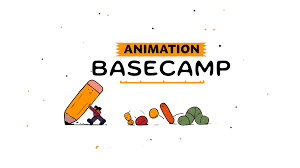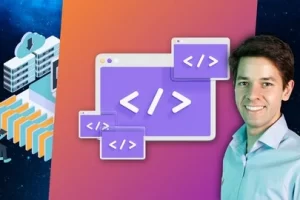Practical UI (2nd Edition) – Adham Dannaway
Gain years of design experience in a matter of hours.
在几个小时内获得多年的设计经验。
A whole UI design course squeezed into a quick and easy read, packed with actionable guidelines and examples.
一整门UI设计课程被压缩成一个快速简便的阅读,充满了可操作的指南和示例。
Use a system of logical guidelines, rather than just gut feeling.
使用逻辑指南系统,而不仅仅是直觉。
Interface design might appear to be a magical art form, but a lot of it is made up from logical guidelines.
界面设计可能看起来是一种神奇的艺术形式,但其中很多都是由逻辑准则组成的。
Much more than just making an interface look pretty.
不仅仅是让界面看起来很漂亮。
Learn the how and why behind UI design to ensure that every design detail has a logical purpose behind it.
了解UI设计背后的方式和原因,以确保每个设计细节背后都有逻辑目的。

Don’t just move stuff around until it looks pretty
不要只是移动东西,直到它看起来很漂亮
User interface design is hard. Having endless design possibilities sounds great in theory, but in practice, it can be frustrating and time consuming.
用户界面设计很难。从理论上讲,拥有无限的设计可能性听起来很棒,但在实践中,它可能令人沮丧且耗时。
With so many options to choose from regarding layout, spacing, typography, and colour, making design decisions can be overwhelming. When you add usability, accessibility, and psychology to the mix, it gets even harder.
在布局、间距、排版和颜色方面有如此多的选项可供选择,做出设计决策可能会让人不知所措。当您将可用性、可访问性和心理学添加到组合中时,它会变得更加困难。
Luckily, UI design doesn’t have to be so hard. Over the years, I’ve realised that most of my UI design decisions are governed by a system of logical guidelines. Not artistic flair or magical intuition, just simple guidelines.
幸运的是,UI设计不必那么难。多年来,我意识到我的大多数 UI 设计决策都受逻辑准则系统的约束。不是艺术天赋或神奇的直觉,只是简单的指导方针。
Sure, artistic talent helps, but a lot of what makes up an intuitive, accessible, and beautiful interface design can be learned. Having a system of logical guidelines helps you efficiently make informed design decisions. Without a logical system, you’re just using gut feeling to move stuff around until it looks pretty.
当然,艺术天赋会有所帮助,但构成直观、可访问和美观的界面设计的很多东西都是可以学习的。拥有一套逻辑指南系统可帮助您有效地做出明智的设计决策。如果没有一个逻辑系统,你只是用直觉来移动东西,直到它看起来很漂亮。
I wish I knew these guidelines when I first started out. They’re a culmination of nearly 2 decades working as a product designer on websites and apps used by millions of people. My hope is that they’ll help you gain years of experience in a matter of hours.
我希望我刚开始的时候就知道这些准则。他们是近 2 年在数百万人使用的网站和应用程序上担任产品设计师的结晶。我希望他们能帮助您在几个小时内获得多年的经验。
No vague, impractical theory. Just quick, actionable advice.
没有模糊的、不切实际的理论。只是快速、可操作的建议。
Rather than countless chapters of tedious, high-level design theory, you’ll get 8 concise chapters of the most important things you need to know about interface design, usability, and accessibility.
您将获得 8 个简明的章节,而不是无数繁琐的高级设计理论,其中包含您需要了解的有关界面设计、可用性和可访问性的最重要的事情。
1. Fundamentals 1. 基本原理
Overarching UI design principles that form the foundation of the guidelines
构成准则基础的总体 UI 设计原则
2. Less is more 2. 少即是多
Practical techniques to simplify interfaces by removing unnecessary details
通过删除不必要的细节来简化界面的实用技术
3. Colour 3.颜色
Learn how to use colour sparingly and purposefully to add meaning to an interface
了解如何谨慎而有目的地使用颜色来为界面添加意义
4. Layout and spacing 4. 布局和间距
Create a consistent spacing system and learn about alignment and layout
创建一致的间距系统,并了解对齐和布局
5. Typography 5. 排版
Learn a system of logical guidelines to make text beautiful and easy to read
学习逻辑准则系统,使文本美观且易于阅读
6. Copywriting 6. 文案写作
Practical guidelines on how to write interface text that clearly communicates with people
关于如何编写与人清晰沟通的界面文本的实用指南
7. Forms 7. 表格
Form patterns and principles to help people complete forms more quickly and easily
表单模式和原则,帮助人们更快、更轻松地完成表单
Learn how to design descriptive and accessible buttons with a clear visual hierarchy
了解如何设计具有清晰视觉层次结构的描述性和可访问性按钮
A few guidelines from the book
书中的一些准则
Here are 2 of 100+ design guidelines you’ll find in the book. Each one comes with visual examples and a clear rationale.
以下是书中 100+ 条设计指南中的 2 条。每个都带有视觉示例和明确的理由。
Break up content using descriptive headings and bullets
使用描述性标题和项目符号分解内容
Break up large pieces of information into multiple smaller ones. This makes it easier and faster for people to understand.
将大块信息分解为多个较小的信息。这使人们更容易、更快速地理解。
Highlight key information using descriptive headings. This allows people to quickly scan information and get a better idea of the structure and organisation of content.
使用描述性标题突出显示关键信息。这使人们能够快速扫描信息并更好地了解内容的结构和组织。
Some won’t read supporting text, so make sure headings make sense when read out of context. This also helps screen reader users, as they often listen to a list of all headings on a page before skipping to the information they’re after.
有些人不会阅读支持文本,因此请确保标题在断章取义时有意义。这也有助于屏幕阅读器用户,因为他们经常在跳到他们想要的信息之前收听页面上所有标题的列表。





